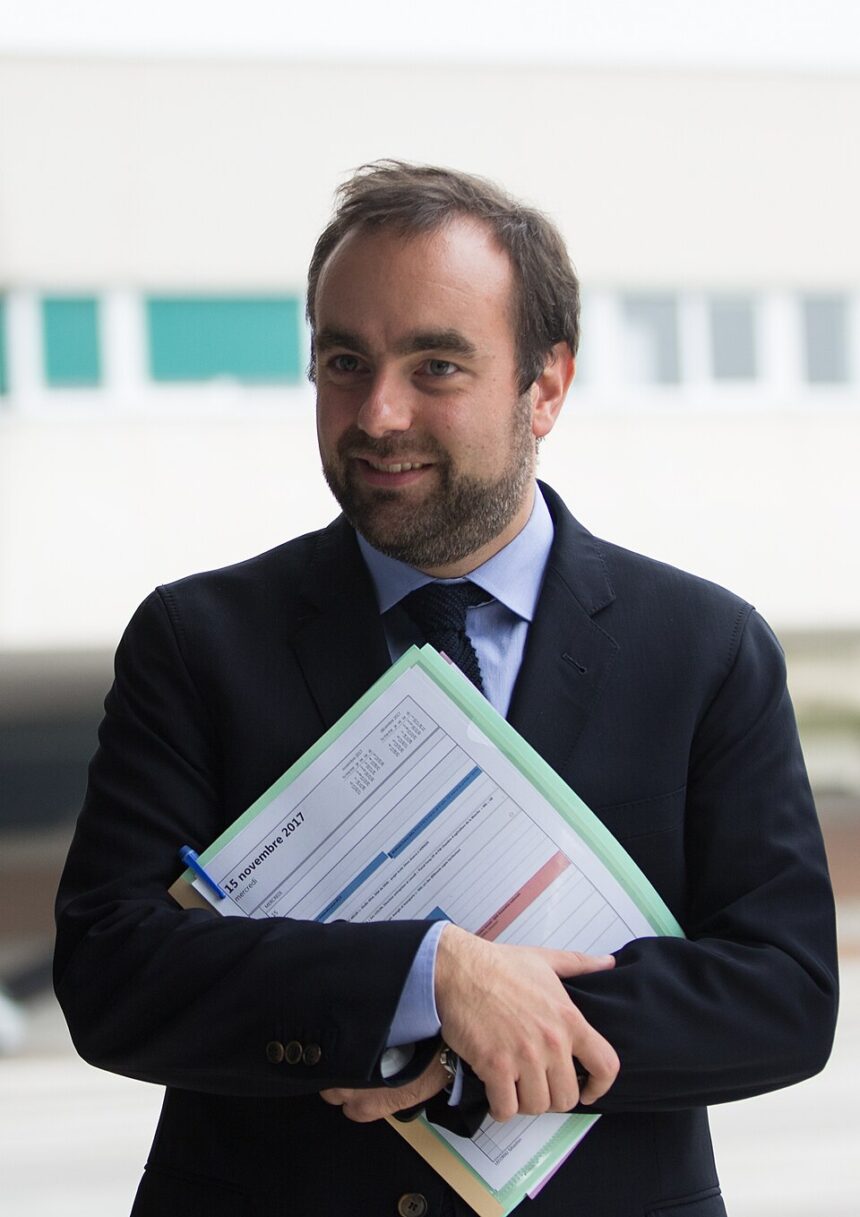French Prime Minister Sébastien Lecornu announced before parliament that he supports suspending the controversial 2023 pension reforms, as his government faces crucial votes of no confidence later this week.
The reform, which raised France’s retirement age from 62 to 64, was one of the cornerstones of President Emmanuel Macron’s second term, and had sparked months of nationwide protests and strikes.
“This autumn, I will propose to parliament that we suspend the 2023 pension reform until the 2027 presidential election,” Lecornu declared, drawing applause from left-wing lawmakers.
Lecornu, who was reappointed as prime minister last week only four days after resigning, must now secure the backing of Socialist MPs to keep his government afloat. Both the far-right National Rally and the far-left France Unbowed (LFI) have tabled no-confidence motions for Thursday, demanding that new parliamentary elections be held.
The Socialist Party has indicated it could support Lecornu’s administration—but only if he commits to fully suspending Macron’s pension reform.
“If he does not explicitly say the words ‘immediate and complete suspension of the pension reform,’ it will be censure,” warned Socialist MP Laurent Baumel in a TV interview. “He is holding his destiny in his own hands. He knows what he must do if he doesn’t want to become the prime minister who resigns every week.”
A Reform That Divided France
The pension reform was forced through parliament in March 2023 without a vote, using Article 49:3 of the French Constitution, after months of debate and unrest. The controversial move triggered accusations of democratic backsliding.
Lecornu acknowledged last week that the decision to bypass parliament had left a “wound on democracy”, a sentiment still felt strongly among voters.
On Tuesday, he revealed that suspending the reform would come with significant financial consequences—€400 million in 2026 and €1.8 billion in 2027—which would need to be offset by other spending cuts. “These costs will have to be compensated by other savings,” he told MPs.
Political Instability and Economic Strain
Lecornu is France’s third prime minister in less than a year, reflecting the severe political instability gripping Macron’s administration. Even if he survives this week’s confidence votes, he still faces the daunting task of pushing through a 2026 budget aimed at reducing a deficit expected to reach 5.4% of GDP this year.
France’s public debt, at €3.4 trillion or 114% of GDP, is the third highest in the eurozone, trailing only Greece and Italy. Lecornu’s decision to reverse course on Macron’s flagship reform underscores the government’s desperation to prevent further political chaos.
Economist Philippe Aghion, one of the 2025 Nobel Prize in Economics laureates, voiced his support for suspending the reform, arguing that the cost of political instability would far outweigh the fiscal expense.
“We are living through an era of crisis,” Lecornu told lawmakers. “Some people want this situation to turn into a regime crisis, but that will not happen.”
Pledge for Democratic Reform
Promising a “serious and reliable budget”, Lecornu vowed to end the government’s dependence on Article 49:3, the mechanism used to pass bills without a vote. Since late 2022, every national budget has been approved this way, bypassing parliamentary consent.
“The government will propose, we will debate, and you will vote,” Lecornu repeatedly told MPs. “Parliament will have the final word.”
Despite audible groans from the chamber, the prime minister announced the creation of a working group on pension reform, which will be tasked with reaching conclusions by the 2027 presidential election.
However, Lecornu cautioned that reversing the reform must be “financially compensated, including through cost-saving measures”, emphasizing that it cannot come at the expense of a growing deficit.
Political Drama and Macron’s Last-Ditch Effort
Both Marine Le Pen’s National Rally and Jean-Luc Mélenchon’s LFI hope to use Thursday’s confidence votes to force early elections and break the deadlock that emerged after Macron’s snap elections in 2024.
That vote resulted in a hung parliament, split into three blocs—far right, left, and centrist—leaving Macron without a clear governing majority.
Lecornu’s political rollercoaster reflects this instability. Just eight days ago, he resigned as prime minister before even facing MPs, only for Macron to reappoint him last Friday in a dramatic turnaround.
The move was widely seen as a desperate attempt by Macron to reassert control over a fragmented National Assembly, which has already brought down two previous prime ministers over failed budget proposals.
For now, Lecornu is determined to survive Thursday’s test. But even if he does, the suspension of Macron’s most symbolic reform marks a turning point in the presidency—one that may reshape France’s political and fiscal future.






